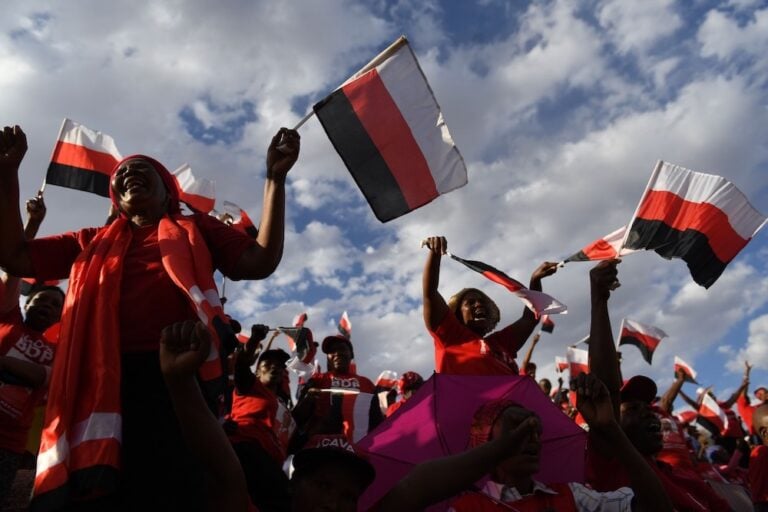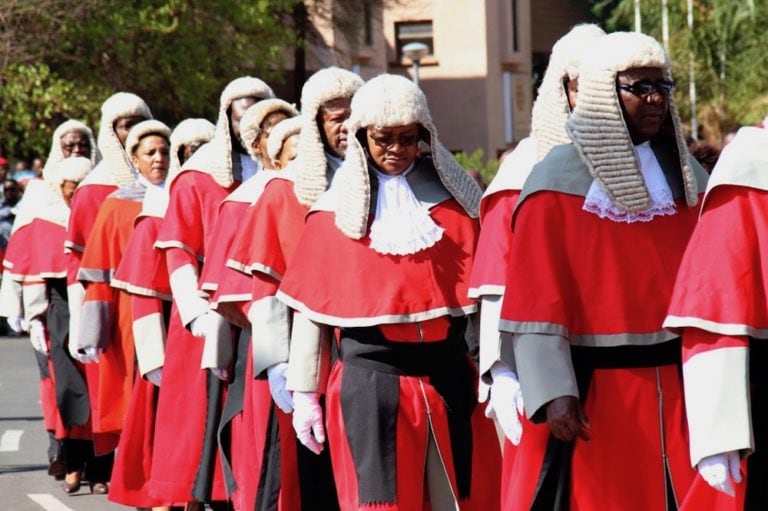If passed into law, Botswana's Criminal Procedure and Evidence (Controlled Investigation) Bill will allow authorities to intercept communications and compel journalists to divulge their sources.
This statement was originally published on misa.org on 26 January 2022.
A collective of Botswana media organizations that includes MISA Botswana, Press Council of Botswana and Botswana Editors Forum have been alarmed by the contents of a piece of legislation currently being discussed in Parliament.
More shocking to us is the fact that the Criminal Procedure and Evidence (Controlled Investigation) Bill published on the 12th January 2022 is being debated under the certificate of urgency rule, which means that it will be expedited through parliament and not get enough scrutiny and interrogation from the public.
This alone, given the huge implications of this law and its direct bearing on a large number of people, is a sign of dishonesty and disingenuousness on the part of the Botswana Government. We should be ashamed of this as a nation. Almost half of the Bill refers to interception of communication and forced disclosure of information for the prying eyes of the state intelligence and law enforcement agencies.
The Bill, which was presented to parliament by the Minister of Defense, Justice and Security, is replete with intonations that are not consistent with modern trends in democratic states. It also does not show any seriousness to fight modern-day international crimes like money laundering and terrorism. Treating every citizen like a criminal suspect shows a lack of foresight on the part of the Botswana government. The Bill eats and erodes the very core of Botswana’s freedoms and liberties.
As the media, we are very worried about the direct implications of this law on the work of journalists, trade unionists and other social activists. The law jeopardizes freedom of expression and makes the media especially vulnerable. We wish to highlight the point that Botswana does not have a Freedom of Information Law. And even without the current Bill, that alone is a bad situation. And this current Bill makes that bad situation worse. This law gives Law Enforcement agencies the power to incept communications without a warrant from the judiciary. The extent to which this will be abused, should just by itself have a chilling effect on the citizens.
Once again, the media will be prone to being targeted and being harassed. Even without this law, the media in Botswana was prone to harassment, arrests and beating by law enforcement agents. We shudder what will now become of it. It is perhaps, noteworthy that a significant number of the ruling party members appeared to have been conveniently absent from the first round of voting in Parliament.
Botswana Media Bodies also note that the law forces the disclosure of information. This goes against the ethics of journalism, in particular, where sources of information are supposed to be protected. For the media, protection of sources is cardinal. It would be regressive and against the practice of journalism if communication between journalists and their sources were to be intercepted by the government and its law enforcement agencies. In fact, such interception exposes not just the journalists but also their sources to grave danger. This will inevitably have a chilling effect on journalists and their sources leading to self-censorship. Once sources are silenced by fear of their communication being intercepted then we should forget about fighting corruption – a key electoral pledge of President Mokgweetsi Masisi in the last General Elections in 2019. To make matters worse, those making such interceptions will be carrying “fake” identities. They will also be immune from prosecution.
This is nothing short of criminalizing journalism itself, and with that, the freedom of expression. Media bodies in Botswana wish to express their united rejection of this law. Media bodies call the government to withdraw the Bill. Accordingly, we call on the government to engage the nation on what it really seeks to achieve. It is our position that sensitive matters like the one addressed by this Bill must be subjected to intense public consultation, even before they are gazetted. Thus, Botswana Media Bodies are shocked by Botswana Government’s cavalier attitude to serious matters like basic freedoms and civil liberties. Lastly, we once again appeal to Members of Parliament and to the State President to reach for their conscience and withdraw the Bill.
Tefo Phatshwane, MISA National Director
Spencer Mogapi, Editors Forum Chairman
Aubrey Lute, Press Council of Botswana Chairman



